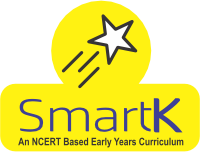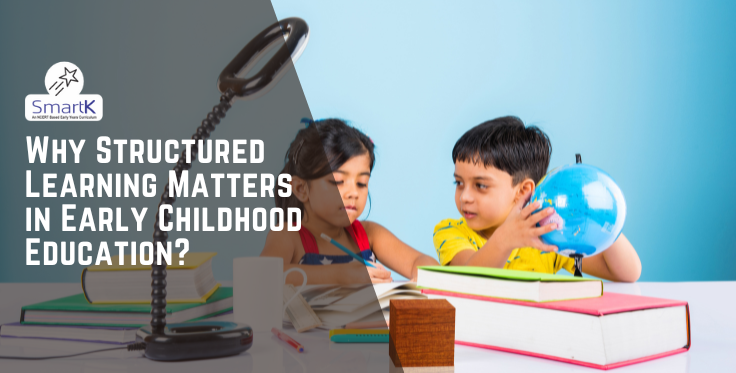Early childhood Education (ages 3-8) is a critical period for brain development and lifelong learning. While unstructured play is essential, structured learning-rooted in play, exploration, and guided discovery-is equally crucial. When implemented thoughtfully, it supports a child’s holistic growth and builds the foundational skills envisioned in India’s NEP 2020 and the NCF for Foundational Stage 2024.
Let’s explore why structured learning, as per national guidelines, is indispensable in early childhood education:
- Lays the Groundwork for Foundational Literacy and Numeracy
As emphasized by NEP 2020 and NCF 2024, the early years must focus on Foundational Literacy and Numeracy (FLN). Structured learning introduces children to language, numbers, shapes, and symbols in a developmentally appropriate, sequential manner, creating the base for future academic success.
- Supports Predictable Routines and Emotional Security
Structured environments offer rhythm and routine-key for young learners. Daily patterns like circle time, story sessions, and guided play help children feel secure, build emotional regulation, and develop executive function skills, all of which are highlighted in NCF-FS 2024.
- Promotes Integrated and Holistic Development
Structured learning integrates physical, cognitive, emotional, language, and social development-a central principle of NEP 2020. Activities are designed to blend art, movement, play, and experiential learning, enabling the child’s all-round growth, not just academic readiness.
- Equips Teachers with Clear Goals and Flexibility
NEP 2020 underscores the need for empowered educators. A structured curriculum gives teachers clear learning outcomes, age-appropriate pedagogy, and flexibility to adapt based on children’s needs-ensuring consistency without rigidity.
- Enables Assessment for Learning, Not Just of Learning
Aligned with NCF 2024, structured programs include continuous and play-based assessments. These help track progress in a non-intrusive way, allowing early identification of learning needs and providing data for individualized support.
- Aligns with National Standards for Quality and Equity
Structured learning, when designed around NEP 2020 principles, ensures equity, inclusivity, and high-quality learning experiences. It allows schools to stay current with national reforms while delivering joyful, relevant, and purposeful early education.
- Builds Parent Trust and Engagement
Parents are active stakeholders in the foundational years. A structured, transparent curriculum provides regular updates, progress reports, and visibility into the child’s learning journey-strengthening the school-home partnership as advocated by NEP 2020.
Structured Yet Joyful: The SmartK Approach
SmartK by S Chand Group embodies the vision of NEP 2020 and NCF 2024 by offering a playful, developmentally appropriate, and goal-driven curriculum kit. It blends thematic learning, guided play, teacher support tools, and child-friendly assessments-ensuring that early learning remains joyful, inclusive, and nationally aligned.





